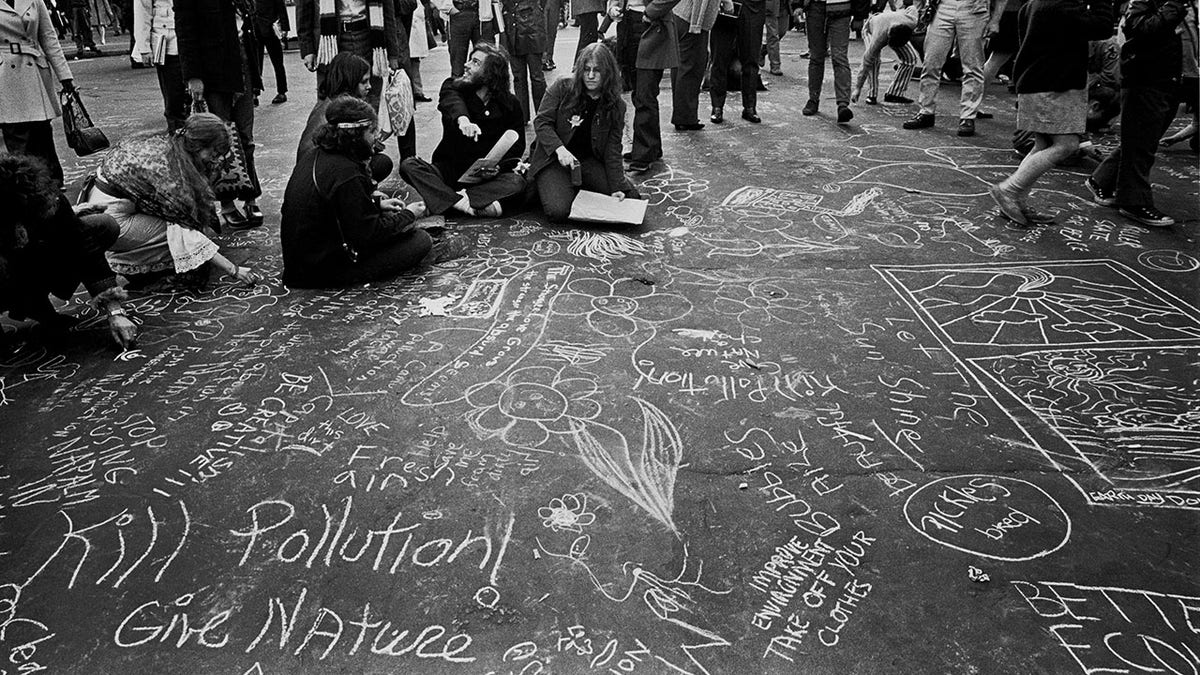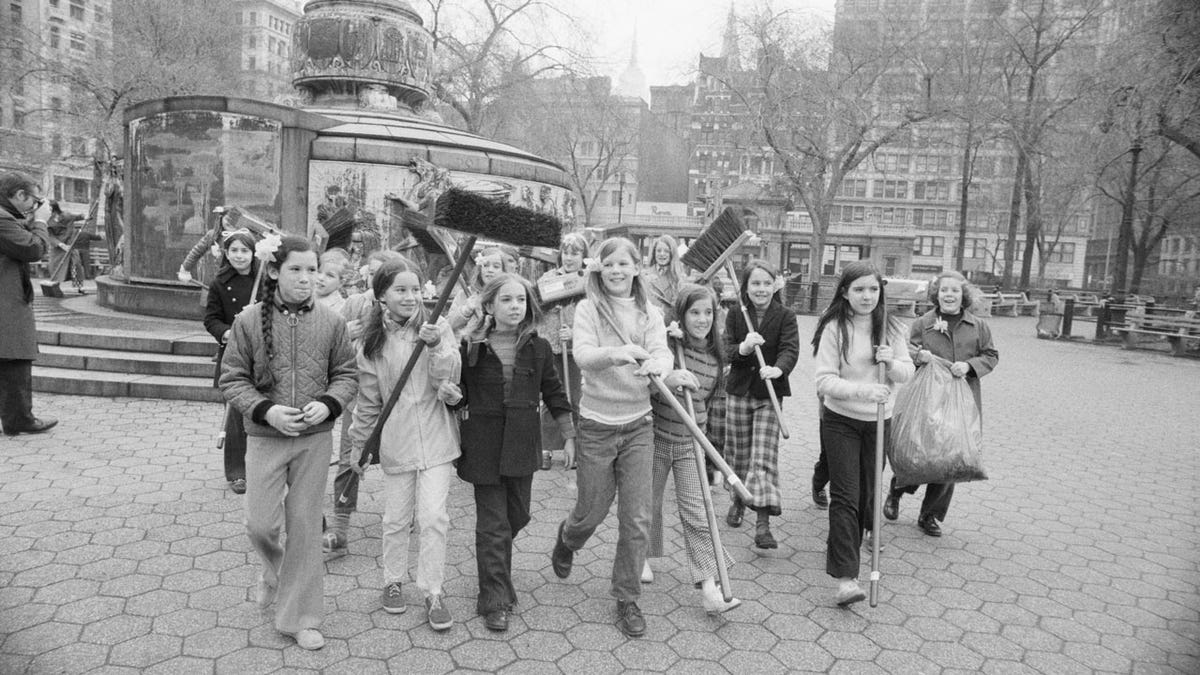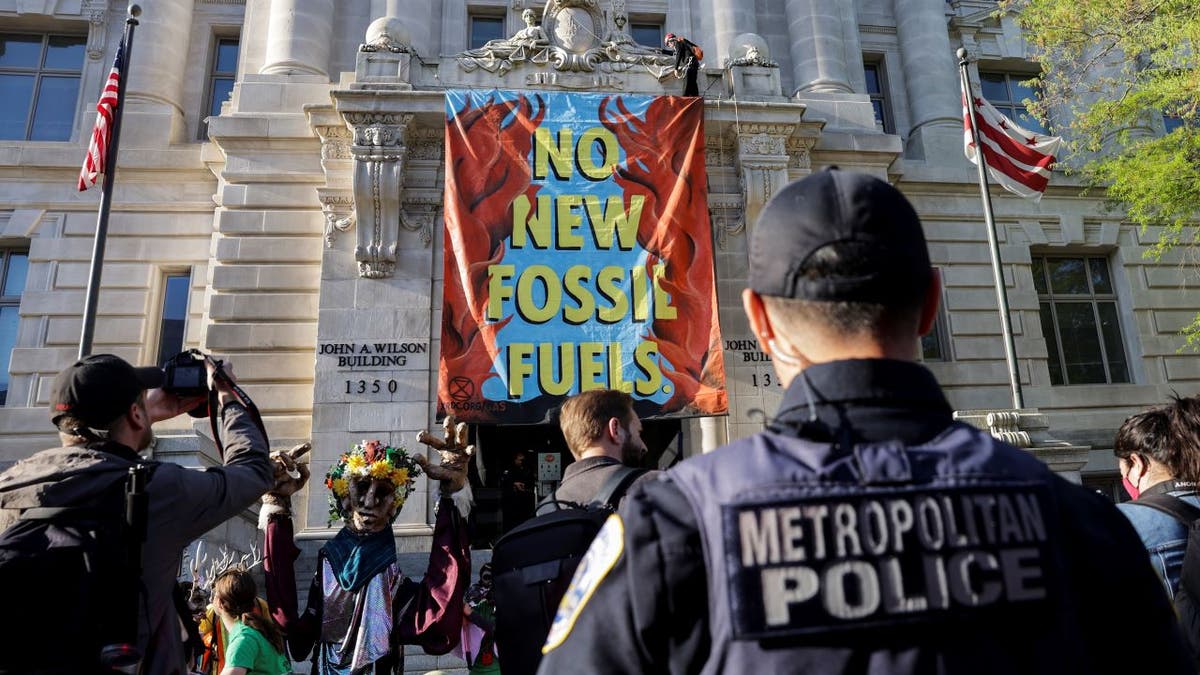Fox News Flash top headlines for April 19
Fox News Flash top headlines are here. Check out what's clicking on Foxnews.com.
"Planet vs Plastics" is the theme of Earth Day this year. Why? Because, according to the event’s organizers, "plastics are a danger to humanity and all living creatures, disrupting the balance of life on Earth." Therefore, "EARTHDAY.ORG is unwavering in our commitment to end plastics for the sake of human and planetary health, demanding a 60% reduction in the production of ALL plastics by 2040."
That sort of hyperbolic condemnation is typical of many recent Earth Days. The reality is that Earthlings and plastics must coexist. In many ways, plastics improve our quality of life. They have revolutionized medicine with life-saving devices, made space travel possible, lightened cars and planes (conserving fuel and lowering air pollution), and made all manner of consumer goods less expensive.
It is true that their convenience and low cost have spawned a throw-away culture that has a dark side: Single-use plastics currently account for about 40% of the plastic produced every year. That percentage could and should be reduced, but the absolutism of the Earth Day organizers illustrates what is wrong with today’s environmental movement.
HALF OF US STATES REVOLT AGAINST EPA CRACKDOWN ON GAS CARS WITH MAJOR LEGAL CHALLENGE
The first Earth Day celebration, a nationwide environmental teach-in held in 1970, was the brainchild of Democratic Senator Gaylord Nelson of Wisconsin, who was interested in environmental issues.

Earth Day on April 20, 1970, in New York, was a touchy-feely experience, not the radical event it has turned into. (Photo by Santi Visalli/Getty Images)
He recruited Pete McCloskey, a conservation-minded liberal Republican California congressman, to serve as his co-chair. In the spirit of the time, it was a touchy-feely, consciousness-raising New Age experience, and most activities were organized at the grassroots level.
Sadly, today’s Earth Day shares much with the current zeitgeist: It reeks of wokeness, political correctness and virtue signaling. It has devolved into an occasion for environmental activists to prophesy apocalypse, dish anti-technology dirt and allow passion and zeal to trump reality.
A generation ago, the mantra was simple and broadly accepted: "reduce, re-use and recycle." However, we hasten to note, as John Tierney highlighted in his classic New York Times Magazine piece, "Recycling is Garbage," recycling isn’t always beneficial.
Instead of setting up a false dichotomy of "Planet vs. Plastics," environmental activists would do well to redirect their zeal and predictions of catastrophe to imagining what we can do to protect the planet. A little innovation can go a long way toward protecting our environment.
Yet, unfortunately, many of those stumping for Earth Day on April 22 this year will oppose environment-friendly advances in science and technology. Consider these several examples:
We are now scratching the surface for ingenious ways to remediate contaminated soil by using plants with the ability to remove toxins such as heavy metals from soil. A comprehensive review of the progress and promise of this technique, known as phytoremediation, states that, "Plant abilities to uptake, translocate, and transform heavy metals, as well as to limit their toxicity, may be significantly enhanced via genetic engineering."
However, most prominent environmental groups oppose genetic engineering and would rather soil a promising technology than abandon a deeply held ideological position.
Similarly, some green groups opposed one of the most innovative efforts to address allegations of climate change caused by animal agriculture – the Impossible Burger, an ingredient of which is a plant-sourced protein, leghemoglobin.

The "sweeper's brigade" takes off for an assigned area on the first Earth Day. Around the U. S., on April 22, 1970, communities large and small embarked on a campaign of cleanliness. (Bettmann)
The protein contains heme, also present in animal meat, and is partly responsible for the taste, texture and appearance of bloody-good meat. As Business Insider noted, "a handful of environmental activists have also taken issue with the burger. But their issue with the burger isn't heme — it's the fact that the Impossible Burger is made using genetically engineered ingredients, or GMOs. Those concerns largely take the shape of the old and unsubstantiated claim that GMOs cause everything from autism to cancer, despite the scientific consensus that they are safe."
A pervasive Earth Day meta-message will be disdain for the capitalist system that drives the innovation needed for effective environmental protection and conservation. (It’s no coincidence that low-income countries tend to be the most polluted.)
"Education" features prominently in Earth Day activities, as in, "Fifty four years ago, the first Earth Day started an environmental revolution. Now, we are igniting an education revolution to save the planet. EARTHDAY.ORG passionately envisions a world where every student ... is embraced by a rich education weaving together climate and environmental understanding, coupled with a strong civic engagement component."
Well, education can take many forms. For a previous Earth Day, seventh graders at a tony private school near San Francisco were given an unusual Earth Day assignment: Make a list of environmental projects that could be accomplished with Bill Gates’s fortune.
This approach to environmental awareness fits in well with the progressive worldview that the right to private property is subsidiary to undertakings that enlightened thinkers deem worthwhile.
And how interesting that the resources made "available" for the students’ thought experiment were not, say, the aggregate net worth of the members of Congress but the wealth of one of the nation’s most successful and most innovative entrepreneurs.
CLICK HERE FOR MORE FOX NEWS OPINION
Another Earth Day assignment for those same students was to read Rachel Carson’s best-selling 1962 book, "Silent Spring," an emotionally charged but deeply flawed excoriation of the widespread spraying of chemical pesticides to control insects.
As described by Roger Meiners and Andy Morriss in their scholarly yet eminently readable 2012 analysis, "Silent Spring at 50: Reflections on an Environmental Classic," Carson exploited her reputation as a well-known nature writer to advocate and legitimatize "positions linked to a darker tradition in American environmental thinking: neo-Malthusian population control and anti-technology efforts."

An environmental activist with the radical group Extinction Rebellion DC scales the Wilson Building as part of an Earth Day rally against fossil fuels on April 22, 2022, in Washington, DC. The group was protesting Washington Gas's use of methane and their planned expansion of gas infrastructure. (Photo by Kevin Dietsch/Getty Images)
Carson’s proselytizing and advocacy led to the virtual banning of DDT and restrictions on other chemical pesticides even though "Silent Spring" was replete with gross misrepresentations and atrocious scholarship.
Her observations about DDT were meticulously rebutted point by point by J. Gordon Edwards, a professor of entomology at San Jose State University, a longtime member of the Sierra Club and the Audubon Society, and a fellow of the California Academy of Sciences.
CLICK HERE TO GET THE FOX NEWS APP
In his stunning 1992 essay, "The Lies of Rachel Carson," Edwards demolished her arguments and assertions and called attention to critical omissions, faulty assumptions, and outright fabrications.
Meiners and Morriss concluded correctly that the influence of "Silent Spring" "encourages some of the most destructive strains within environmentalism: alarmism, technophobia, failure to consider the costs and benefits of alternatives, and the discounting of human well-being around the world." Sounds a lot like the agenda of Earth Day 2024.
Henry Miller, a physician and molecular biologist, is the Glenn Swogger Distinguished Fellow at the American Council on Science and Health. He was a research associate at the National Institutes for Health and the founding director of the FDA’s Office of Biotechnology. Follow them on Twitter at @henryimiller.










































